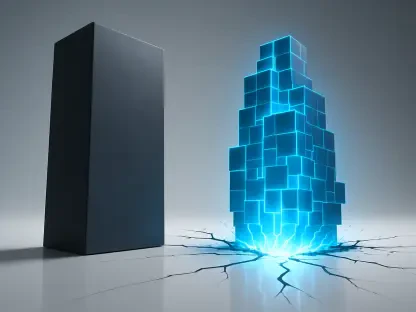In the rapidly evolving fields of natural language processing (NLP) and artificial intelligence, the balancing act between maintaining data privacy and ensuring the robustness of machine learning models has become more critical than ever. With large-scale pre-trained models like GPT-3 and BERT increasingly utilized in sensitive domains such as healthcare and finance, protecting individual data contributions while safeguarding against malicious inputs is a growing concern for researchers and practitioners.
Introducing a Novel Framework
To address these challenges, a Chinese research team has developed a novel framework that integrates differential privacy (DP) and adversarial training. This innovative approach aims to enhance both privacy and robustness in NLP systems. Differential privacy works by adding Gaussian noise to individual data contributions during the gradient update process, effectively masking data and preserving privacy. In tandem, adversarial training involves creating perturbed versions of input data to prepare models for potential adversarial attacks. The combination of these two techniques generates adversarial gradients, which are subsequently privatized with added Gaussian noise, thereby ensuring that even perturbed data remains protected.
Rigorous Experiments and Validation
The effectiveness of this framework was put to the test through a series of experiments on three distinct NLP tasks: sentiment analysis, question answering, and topic classification. For these experiments, datasets such as IMDB, SQuAD, and AG News were utilized, with the BERT model being fine-tuned under varying differential privacy budgets (ε values of 1.0, 0.5, and 0.1). Adversarial training used perturbations generated by the Fast Gradient Sign Method (FGSM). Evaluation metrics included accuracy, F1 scores, Exact Match (EM), and robustness against adversarial examples, with the goal of determining the framework’s overall effectiveness in real-world scenarios.
Understanding Trade-offs and Results
The results of these experiments shed light on the inherent trade-offs between privacy, utility, and robustness. Stricter privacy constraints, indicated by lower ε values, were found to reduce model accuracy but simultaneously enhance robustness, particularly when higher λ values were used during adversarial training. This suggests that while privacy measures might compromise some utility, adversarial robustness can still be significantly improved by fine-tuning specific hyperparameters. Crucially, these findings highlight the need to carefully balance these competing factors to optimize model performance in sensitive applications.
Future Implications and Challenges
In the swiftly advancing fields of natural language processing (NLP) and artificial intelligence, striking a balance between maintaining data privacy and ensuring the reliability of machine learning models has never been more important. With the increasing use of extensive pre-trained models such as GPT-3 and BERT in critical areas like healthcare and finance, the challenge of protecting individual data while preventing malicious inputs is a growing concern for experts and practitioners. As these models play a crucial role in sensitive domains, the importance of data privacy and model robustness cannot be overstated. Researchers continue to seek effective methods to safeguard personal information without compromising the performance and integrity of these advanced AI systems. Balancing these two critical aspects is paramount to the ongoing development and ethical deployment of NLP and AI technologies.









